In the fall of 1987 DJ Jazzy Jeff and Will “Fresh Prince” Smith made their first-ever trip out of the United States to London, England where their distributor Jive Records was headquartered. After the success of their 1987 debut, Rock The House, the two Philly kids prepared to record their follow-up, He’s The DJ, I’m The Rapper, in the label’s studio overseas.
However, weeks before they were set to fly “across the pond,” Jeff got into a car accident and broke his right leg. The doctor told him not to fly and to postpone the trip for 8 weeks, but Jeff refused. Two weeks later they were checked into a Holiday Inn, Swiss Cottage and would spend the next month recording at a feverish pace.
“We spent more than a month in London, and I couldn’t have told you a single thing about the city,” Will writes in his memoir, WILL. “We never adjusted from our jet lag. We woke up at 4:00pm every day, hit the studio by 6:00pm., worked until about 6:00 am, grabbed some breakfast from the Swiss Cottage buffet, and went to bed around 7:00 am. We kept that schedule up for almost six weeks.”
The finished product, Hip Hop’s first double album, was released on March 29, 1988, 35 years ago today. The single “Parents Just Don’t Understand” was nominated for the first ever rap Grammy in 1989, alongside Salt-N-Pepa’s “Push It,” “Going Back To Cali” by LL Cool J, Kool Moe Dee’s “Wild Wild West” and “Supersonic” By JJ Fad. However, the new category was not going to be aired on television, so the artists boycotted the program, refusing to attend.
Fast forward to 2023 and in a full-circle moment, DJ Jazzy Jeff was on stage at the Grammys to pay tribute to Hip Hop in commemoration of its 50th birthday. During a recent conversation with HipHopDX, Jeff shared his memories of recording He’s The DJ, I’m The Rapper, boycotting the Grammys and what it meant to be on the stage 34 years later.
LONDON IS CALLING
He’s The DJ, I’m The Rapper was bittersweet. It was our second album. When we went into that album, we were signed to a local independent record company and it was being distributed by Jive.
A month before we were to go to London to record He’s The DJ, I’m The Rapper, I was in a car accident and shattered my kneecap. I had a cast from my thigh to my ankle. I had to go to London and go to the studio. We were excited that we were going to London. We’re going to work on our sophomore album. We were really geeked.
The first night we get to London, Public Enemy and a bunch of other acts were over there and we went to go to the club and I got to the door and they looked at me and said, “We don’t allow crippled people in the club.” We were trying to explain to the bouncer like, “Hey, this is DJ Jazzy Jeff and Fresh Prince.” He didn’t believe me and I never got in. I ended up having to catch a cab back to the hotel. That was a crazy way to start off.
A week into us recording that record, the independent label wanted to sell us and we ended up getting off of the independent label, going directly to Jive. I think the trajectory of our career would’ve been very different if we were still on that independent label. It was just ironic that they chose to sever ties right before our biggest album.
We went into the studio, we pretty much worked from about four o’clock in the afternoon to four o’clock in the morning. Then we would go back to the hotel, we would fight to stay up till six o’clock. We would go downstairs and eat the nastiest English breakfast that I’ve ever had, which is greatly different now.
Then we would go to sleep. We would go to sleep maybe about 6:30. We would wake up about two o’clock. We would start working on ideas in a hotel room and the car would pick us up at four o’clock and we’d go to the studio. We did this six days a week except Sunday. Sunday was the only day that we had off.
It was hard because it was time for my cast to come off and it started to irritate me. It’s a whole story that Will put in his book that he called downstairs and ordered about 35 butter knives and tried to cut my cast off. It was fantastic.
I think the thing where I said it was bittersweet was I stayed through the entire mixing process, produced the record, mixed the record. This was the early days of the 808. I’m putting 808s in records like “Brand New Funk.” This is almost like breaking a sonic rule. I got this banging and this is how I want it. I’m telling the engineer like, “No, we want it to be prominent. We want it to hit.” He’s like, “Okay.”
I didn’t go to the mastering session. When we sent it over to mastering, they thought we made a mistake in the mixing and had the kick drum too loud and he took it out in mastering. As much as I love that album, I hate hearing it. Because it doesn’t sound like it was supposed to sound. That was the lesson that I learned that I am going to follow this record until this shit come out to make sure that nothing ever changes.
“It was kinda an accident, the way that it happened
One day I was rappin’, and on the beat, Jeff was backin’ me up
And all of a sudden, he brought in a cut
And I dropped my microphone and said
“What the? Hol’ up, Jeff, wait a minute, play it”
He just smiled and said, “Yeah def ain’t it?” – “Brand New Funk”
That was the creative process. I basically covered all of the production. He covered all of the lyrics, but what we always had is if he didn’t like the production, he could veto it. I also had the final veto that if he didn’t like it and I believe really strongly in it, he would do it. It was the same way lyrically, if I made something and he wrote something and I didn’t feel, if he told me, “Yo, I really think this is solid,” I would back off and let him do it.
That creative process really helped us because one wasn’t more important than the other. The whole idea, we looked at as, that this is a whole and we want to make a great record, not Jeff. If Jeff makes a great beat and the rap’s not good, if Will writes great rap and the beat’s not good, we both lose. It was like we have to do checks and balances of each other.
The way my creative processes work, I made a beat in the hotel room and he wrote the rap and he’s saying it to me in my ear. Him recording it wasn’t the first time that we heard it. We would work the ideas out, but especially back then, studio time wasn’t as easy to come by as it is now. We were very good at doing as much prep work as we can before we go into the studio.
When he wrote it, we kind of played tag. I made the beat and when he wrote it, me putting the horns in and then the breakdown and then we are talking about, “Okay, how are we going to do the cuts and how is the hook going to play out?” We were just trading off and I thought that he married the flow to that beat perfectly.
31st Annual Grammys In ‘89
[The night of the Grammys] Went to a bunch of parties. It was bittersweet because we got wind that we had won so we were excited that we won, but it sucked because we couldn’t share it. Especially back then, you wanted to tell all your friends to watch the Grammys and you know how that is. You got everybody in Philly watching the Grammys and they don’t see you. They don’t announce the category, they don’t do anything. Everybody’s like, “Yo, what’s up?” Only a select few people saw the ticker tape run across the screen that it said previous winners.
That’s what we were complaining about. We felt that at that point in time, Hip Hop was a little bit too big to take that level of a backseat. I can’t sit here and say we boycotted because we knew what we were doing. It was plain and simple like, “Oh wow, you not going to show us on TV? That’s wack. We not coming.” We didn’t realize that it was going to resonate the way that it did because there were a couple of people that were kind of like, “Well, I’m still going.”
I think J.J. Fad went and I think Kool Moe Dee went. We understood. It was just kind of one of those things, this was so early in the Hip Hop process, it was just one of those things that we were still fighting for legitimacy. There were still people out there whispering, “This is going to be over. It’s a fad. No one really cares about it.”
To watch it explode like that, you were proving naysayers wrong. Then when you sit and think about it, I kind of look at it like if I’m a factory worker and I’m making cars and somebody says the car’s about to be played out, they’re going to shut the factory down, you fight for your job.
That’s basically what it was. It’s like this is something that we did for fun that turned into pretty much our livelihood and there’s somebody that’s just saying, “All this is going to be over in a second.”
The 2023 Grammys Hip Hop 50 Tribute
The first thing that went through my mind is I don’t want to be in Questlove’s position of having to fit 50 years of Hip Hop in 15 minutes without ruffling feathers. We had a really good talk about that. One piece of advice that I offered him is I said, because what people don’t understand, there is a magnitude of reasons for people not to do this that people never really understood.
The Grammys and Hip Hop have had a tumultuous relationship over the years, especially the founding fathers of Hip Hop. That it’s kind of like I could understand every last one of the founding fathers saying, “I’m not doing that.” I told him this wasn’t about the Grammys, at least for me. This was not about the Grammys. We just did it on the Grammy stage.
I told him, I said, “You need to pass a message along to anybody that you asked that we will not be here for the 100th and nobody gives a damn about the 51st.” I had the opportunity in 1992 to go to Barcelona with the Dream Team. I let something get in the way of that. I cannot watch anything on the Dream Team and not realize that regret. I don’t want anybody to feel that regret when it comes down to Hip Hop.
https://www.youtube.com/watch?v=HXsqCrHSKvU
Now, I understand you can’t fit everybody. I personally think Questlove did a really good job. He really broke down his reasoning. You had people like, “KRS should have been there.” There’s a million, everybody should have been there.
But when somebody was like, “KRS should have been there.” He said, “Rakim pretty much covered that era. As much as I wanted Rakim and KRS, if I put Rakim and KRS, I got to put Big Daddy Kane. Now that’s too much time in that time slot.”
He put it together and he’s like, “Man, this is 30 minutes.” You having to cut and trim and do all the rest of that. There’s a larger tribute planned that you can include everybody, but I thought it was definitely monumental.
I really looked at it like the Grammys was an old girlfriend that I dated that we didn’t really have the best relationship and I got invited to her party with all of my friends and we went and I saw her and I said, “Hey.” And I’m cool now.
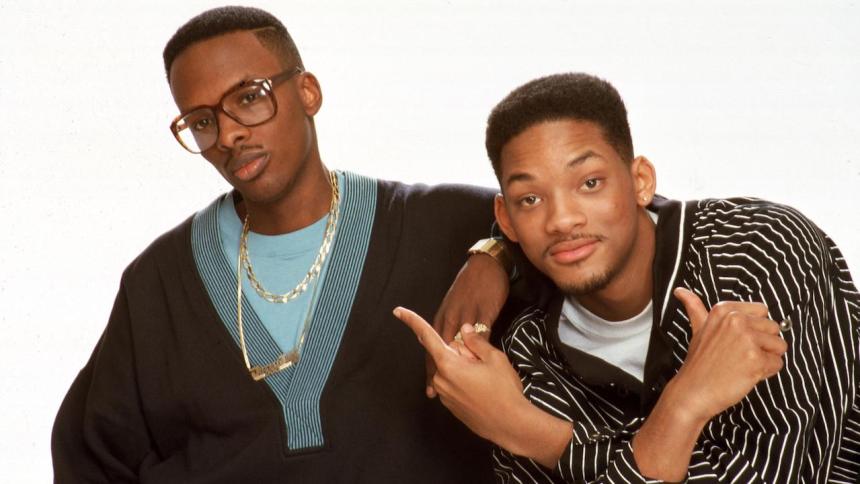
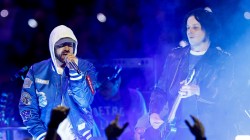
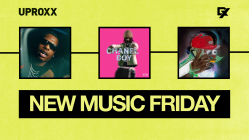
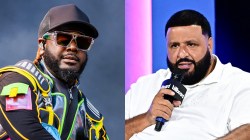
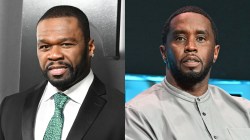
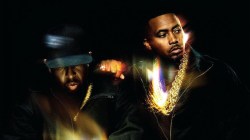
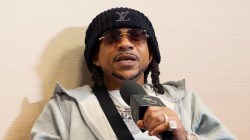
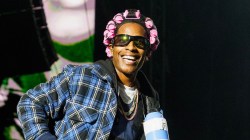
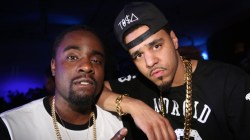
‘Brand New Funk’ is the inspiration behind Slum Village’s ‘I don’t know.’ Dope shit!
Classic album.
Great post as always! Excellent work DX! Congratulations